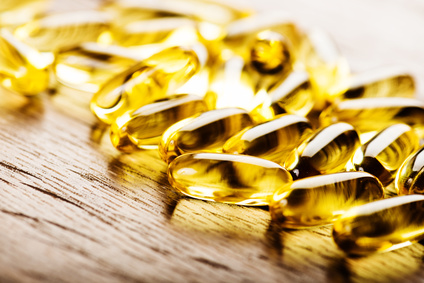
Advertisement
You’ve heard it dozens of times: fatty or oily fish like salmon, tuna, mackerel and trout are good for your health, despite their abundance of fats. In fact, it’s the high-fat content of their oils that make them healthy. These oily fish are full of omega-3 fatty acids — the good fats — and the American Heart Association recommends that you eat at least two servings of these fish twice a week.
So what’s so good about these fats that compels experts to advise eating oily fish and supplementing with fish oil?
The benefits of good fats
Oily fish are famously good at providing two things: protein, which your body uses to repair damaged cells and make new ones, and healthy fats called omega-3s. Omega-3s are said to have anti-inflammatory properties that can help lower your risk of inflammation-related diseases, such as heart disease, arthritis and cancer.
The two main omega-3s in fish oil are docosahexaenoic acid (DHA) and eicosapentaenoic acid (EHA). You can’t get these healthy fats from plant sources. Nuts and seeds are rich in a different type of omega-3 known as alpha-linolenic acid (ALA). While ALA offers its own unique benefits, DHA and EPA play many important roles inside your body in addition to providing a wide range of benefits.
According to a 2012 study, DHA and EPA are essential for proper growth and development, as well as healthy aging. They are also involved in anti-inflammatory processes and serve as precursors of various lipid mediators. Lipid mediators are signaling molecules that help regular cellular responses, including the growth and death of cells and inflammation.
DHA is also a key component of cell membranes. In fact, the cells of your brain and retina contain high amounts of this healthy fat. Meanwhile, EPA is used by your body to produce eicosanoids, which are molecules required for reproduction, gastric secretion and blood pressure regulation. Aside from oily fish, you can also get DHA and EPA from seaweed — the so-called sea vegetables — and marine algae.
Here are some of the benefits offered by DHA- and EPA-rich fish oil:
- Helps protect against heart disease — According to a study by American researchers, the omega-3s in fish oil can counteract the detrimental effects of mental stress on the heart. Volunteers who supplemented with fish oil for several weeks showed blunted heart rate reactivity and muscle sympathetic nerve activity under stress, suggesting that fish oil exerts protective effects on cardiovascular function during mental stress.
- Helps reduce arthritis risk — Using data from a population-based prospective study, Swedish researchers found that adequate daily intake of omega-3s like those found in fish oil can reduce a person’s risk of developing rheumatoid arthritis by 35 percent. Consistently high long-term consumption can lower your risk by up to 52 percent.
- Helps keep the brain healthy — Many studies have reported that alcohol abuse increases the risk of dementia. But a 2013 study found that the DHA in fish oil can protect brain cells from alcohol-triggered inflammation. In fact, DHA helped reduce neuroinflammation by about 90 percent in brain cell cultures exposed to amounts of alcohol more than four times the legal limit for driving.
- Helps lower the risk of certain cancers — According to a 2013 study, low doses of EPA can effectively stop the growth of cancerous skin cells. The researchers noted that EPA does this by arresting cell division and triggering apoptosis, or programmed cell suicide. Meanwhile, other studies have reported that high consumption of fish oil in women can help reduce their breast cancer risk.
- Helps maintain healthy vision — Research has found that retina function progressively declines with age. But DHA supplementation may help preserve this function and prevent age-related functional losses, according to a study by researchers at the University of Alberta in Canada.
An update on fish oil supplementation and heart health
In a recent study, Australian researchers explored the benefits of combining fish oil with curcumin, another popular supplement for supporting good heart health. They worked with 152 older adults aged between 50 and 80 who were either overweight or obese and lived a sedentary lifestyle. The researchers divided the participants into four groups and asked them to take either a placebo, fish oil, curcumin or a combination of fish oil and curcumin every day for 16 weeks.
The researchers found that the participants who took fish oil daily (2,000 mg of DHA + 400 mg of EPA) experienced significant improvements in their heart rate, blood triglyceride and blood cholesterol levels. Specifically, the participants enjoyed a three percent reduction in heart rate compared to the placebo, a 24 percent reduction in their blood triglyceride levels and an eight percent increase in their good cholesterol levels.
But contrary to what they expected, the combination of fish oil and curcumin did not produce additional benefits. The researchers said that this could mean that the two supplements do not work synergistically. They also noted that another research team conducted a similar experiment and came up with the same results.
Despite the combination of fish oil and curcumin falling short of expectations, the researchers said that their study further proves why supplementing with fish oil — or eating oily fish — is one of the keys to a healthy heart. If you want to maintain good heart health for as long as possible, consider eating at least two servings of oily fish every week or supplementing with fish oil daily. Boosting your intake of healthy fats is sure to benefit other parts of your body as well.
Sources:
Advertisements







